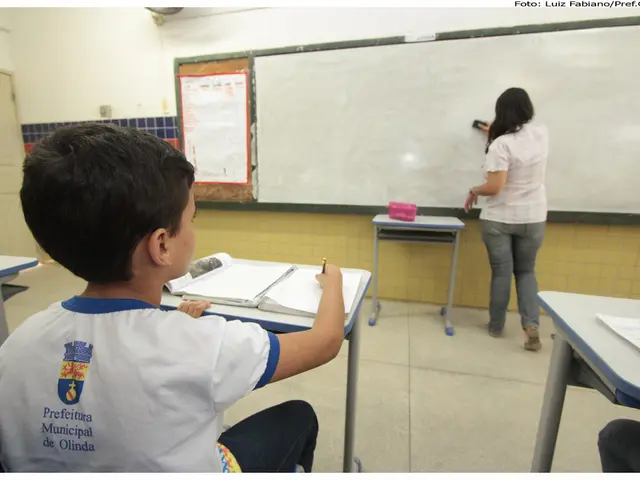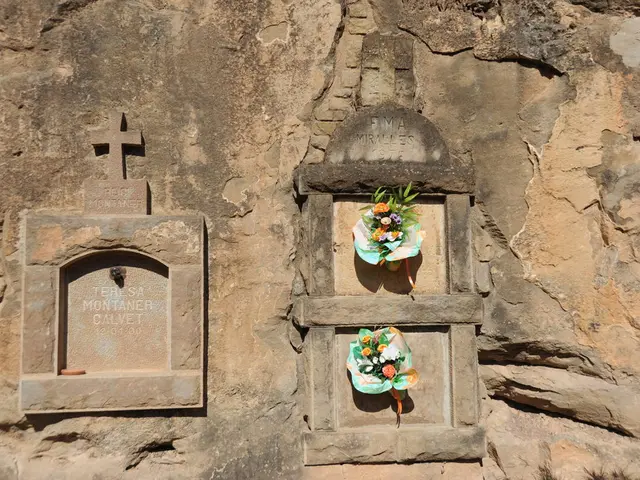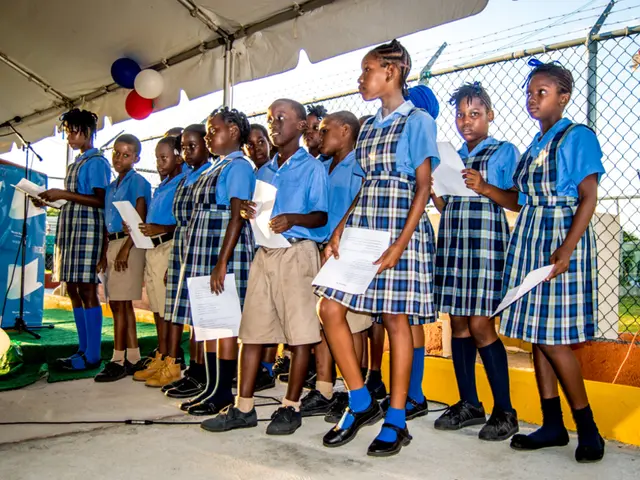International Court of Justice calls for the apprehension of Taliban leaders due to their alleged mistreatment and oppression of women.
In a landmark decision, the International Criminal Court (ICC) has issued official arrest warrants for two top Taliban leaders: Hibatullah Akhundzada, the Taliban's supreme leader, and Abdul Hakim Haqqani, the head of Afghanistan's Supreme Court under Taliban rule. The warrants, announced on July 8, 2025, accuse the leaders of crimes against humanity, specifically for persecuting women, girls, and other persons on gender and political grounds since the Taliban seized power on August 15, 2021.
The charges detail that these leaders ordered or induced persecution, targeting women and girls' rights including education, freedom of movement, expression, and religion, and also against persons identified as "allies of girls and women" or those non-conforming to Taliban policies on gender and gender identity.
The ICC's decision is significant as it emphasizes that members of the international community should recognize these individuals as criminals rather than legitimate government representatives. However, the enforcement of these arrest warrants depends heavily on the cooperation of ICC member states to arrest and hand over the accused, posing practical challenges given the current geopolitical situation.
The Taliban's actions against women and girls have been severe and far-reaching. Edicts in line with their interpretation of Islamic law have squeezed women and girls from public life, depriving them of their rights to education, privacy, family life, and freedoms of movement, expression, thought, conscience, and religion. The Taliban government barred girls from secondary school and women from university, making Afghanistan the only country in the world to impose such bans.
Authorities imposed restrictions on women working for non-governmental groups and other employment, resulting in thousands of women losing government jobs or being paid to stay home. The Taliban authorities have also imposed a "vice and virtue" law that restricts women's behavior and appearance in public, and have closed beauty salons, blocked women from visiting public parks, gyms, and baths, and imposed restrictions on women travelling long distances without a male chaperone.
The ICC's chief prosecutor, Karim Khan, stated that Afghan women and girls, as well as the LGBTQ community, are facing an unprecedented, unconscionable, and ongoing persecution by the Taliban. The United Nations has labelled these restrictions as "gender apartheid."
Despite the Taliban's pledge of a softer rule after regaining power in August 2021, the ICC's arrest warrants suggest ongoing persecution of women and girls. Khan warned he would soon be seeking additional arrest warrants for other Taliban officials.
Established to rule on the world's worst crimes, such as war crimes and crimes against humanity, the ICC's decision underscores the importance of holding those responsible for such atrocities accountable. The current status is that the arrest warrants for Hibatullah Akhundzada and Abdul Hakim Haqqani are active and publicly announced but have yet to result in their detention, relying on international cooperation for execution.
- The arrest warrants issued by the International Criminal Court (ICC) for Hibatullah Akhundzada and Abdul Hakim Haqqani highlight the need for general news outlets to report extensively on education-and-self-development issues, as the Taliban leaders stand accused of restricting girls' access to education and women's freedoms in Afghanistan.
- Politicians and diplomats worldwide should address crime-and-justice concerns, as the ICC's decision emphasizes the importance of international cooperation in enforcing warrants against Taliban leaders like Hibatullah Akhundzada and Abdul Hakim Haqqani, whose actions against humanity have been widely condemned.




